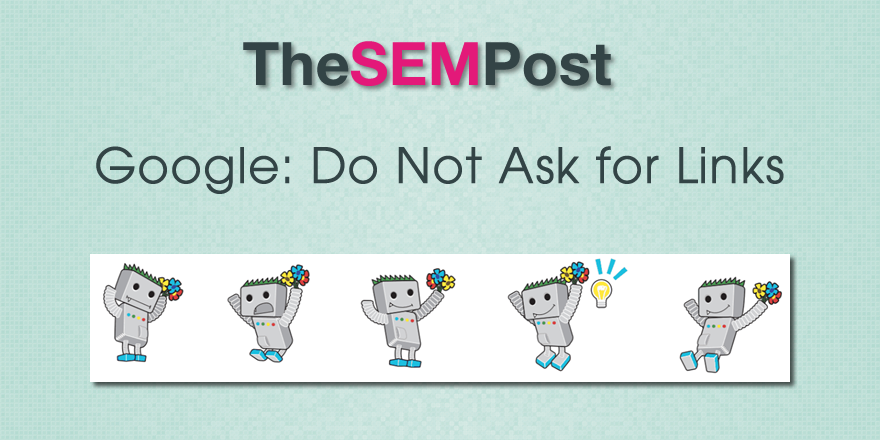 Google published a blog post on the Portuguese Webmaster Blog reminding webmasters of quality links, what they should do if they were penalized for links and how to request reinclusion.
Google published a blog post on the Portuguese Webmaster Blog reminding webmasters of quality links, what they should do if they were penalized for links and how to request reinclusion.
However, one thing definitely sticks out in this blog post – and that is Google stating that webmasters should not ask for links: não compre, venda, troque ou peça links
While the blog post isn’t in English, both Google Translate and Bing Translation confirm the translation.
 Why wasn’t this posted on the other Webmaster blogs too? Usually in these cases, it is due to a major link network being removed in either the same country or in the same language, although I haven’t seen reports yet. But it is almost identical to a blog post that they added to the same webmaster blog just over a year ago, also by Diogo Botelho from Search Quality & Webmaster Outreach at Google.
Why wasn’t this posted on the other Webmaster blogs too? Usually in these cases, it is due to a major link network being removed in either the same country or in the same language, although I haven’t seen reports yet. But it is almost identical to a blog post that they added to the same webmaster blog just over a year ago, also by Diogo Botelho from Search Quality & Webmaster Outreach at Google.
It is worth noting that the line about do not ask for links was included a year ago too, but no one happened to notice the translation at the time.
Comparing it to Google’s Link Schemes page in the Google Search Console quality guidelines, it makes no mention specifically that webmasters shouldn’t be asking for links, but does make reference to buying, selling and exchanging links.
Buying or selling links that pass PageRank. This includes exchanging money for links, or posts that contain links; exchanging goods or services for links; or sending someone a “free” product in exchange for them writing about it and including a link
Is the reference about not asking for links targeting those who are using other means to solicit links, such as the recent Thumbtack case where they were awarding points for links, in a move they said initially was not buying or selling links and was perfectly fine? Obviously since this language was in there from Google’s post a year ago, it wasn’t specifically targeting Thumbtack, but it could be targeting similar situations which are still pretty prevalent despite many staying well clear of them.
All in all, not asking for links is probably a good strategy for beginner SEOs or webmasters who might not know the ins and outs of what makes a legitimate link and what makes a sketchy one, since many of them still fall for “link exchanges” and selling footer or sidebar space. And this post is definitely targeting those who are either recovering from a link penalty or fixing one, so it probably makes sense to not throw anymore potentially sketchy ones into the mix by asking for new ones.
However, experienced SEOs are definitely well versed in the nuances of link building to ask for quality links from the right sources without worrying about it harming the site.
H/T: Aaron Wall
Marie Haynes says
I feel like this is a translation issue. John Mueller has said several times in Webmaster Forum hangouts that it can be ok to ask for links. Here are a couple of examples:
https://t.co/3ph9UxIKvT – John was asked about a new site that was starting over and whether they could contact sites that used to link to their old url and ask for a link to the new site. He said “I think that would be fine.”
https://t.co/98x8NrJOHl – John was asked if it is ok to reach out to people and ask them to link and he said, “In some cases that definitely makes sense.”
As with any SEO type of tactic, I’m sure that this could be overdone to the point where it goes against the Quality Guidelines but I don’t feel that there is anything wrong with asking someone to link to your website.
Barry Schwartz says
I do agree with you on that. Seems way off but communication isn’t Google’s best characteristic.
Gianluca says
This is the problem of using Google Translate for localizing content